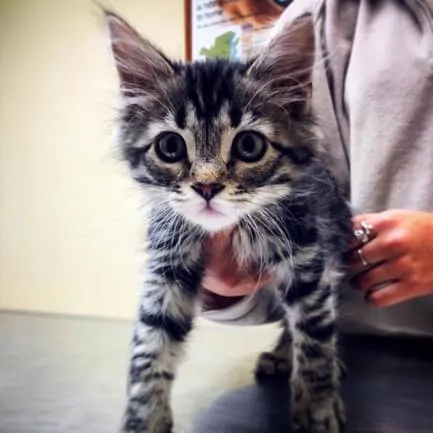Pet Vaccinations in Fallston, MD
Keeping your pet healthy throughout their life starts with preventing injuries and health conditions. A key part of your pet's long-term well-being is providing pet vaccinations to help reduce their risk. A vaccination from our Fallston vet allows your pet to avoid a common ailment and keep them healthier.
Core Vaccinations for your Pets
Our veterinarian provides core vaccinations for any kitten or puppy that comes into our clinic. Core vaccinations are the foundation of your pet's long-term health needs.
Core vaccines for a dog include:
- DA2PP - Vaccine given at 8, 12, and 16 weeks. Called the "distemper shot," this combo vaccine actually covers for not only distemper, but also adenovirus-2, parvovirus and parainfluenza. This is a very important vaccine and is considered a requirement for all dogs. We boost this vaccine at 1 year, then every 3 years thereafter.
- Rabies - Vaccine given at 12-16 weeks. Rabies is a public health concern and this vaccine is required by state law. We boost this vaccine at 1 year, then every 3 years thereafter.
Every dog must obtain the core vaccines as a puppy and make sure your pet follows a schedule from our Fallston vet to avoid unnecessary risks to his or her health.
Core vaccinations for cats include:
- DRC - Vaccine given at 8, 12, and 16 weeks. Called the "distemper shot," this combo vaccines cover for not only feline distemper (panleukopenia), but also feline rhinotracheitis and feline calicivirus. This is a very important vaccine and is considered a requirement for all cats. We boost this vaccine at 1 year, then every 3 years thereafter.
- Rabies - Vaccine given at 12-16 weeks. Rabies is a public health concern and this vaccine is required by state law, even for indoor cats. We boost this vaccine at 1 year, then every 3 years thereafter.
The core vaccines are given to a cat early in his or her life to reduce the risk of serious medical complications to your pets.
Non-Core Vaccinations
Non-core vaccinations are optional for your pet. It is not a requirement, but we may suggest additional vaccines based on your lifestyle. For example, we may suggest a vaccine for Lyme's Disease if you take your dog out hunting or hiking. The vaccine prevents your pet from facing an unnecessary illness due to outdoor excursions. Here are a list of non-core vaccines for dogs:
- 4-way Lepto - Vaccine given at 8 weeks, then booster 3-4 weeks later. The distemper vaccine we carry usually is a lepto combo. Lepto is a nasty bacterial disease transmitted through the urine of wild animals and can cause serious liver and/or kidney damage. We generally recommend that all dogs in our area receive this vaccine. This vaccine is boosted annually.
- Lyme - Vaccine given starting at 9 weeks, then boosted 3-4 weeks later. Lyme disease is very prevalent in our area, so we generally always recommend this vaccine. Tick prevention via flea/tick preventatives is the best way to protect your dog from lyme disease, but if a tick were to attach, this vaccine serves as a second-line of defense. This vaccine is boosted annually.
- Bordetella/Parainfluenza - Vaccine given starting at 8 weeks. We usually give this as nose-drops but can also be given via injection. This is the "kennel-cough" vaccine and we recommend this vaccine for dogs that are going to be in contact with others, especially those that go to dog parks, kennels, or grooming facilities. Keep in mind that kennel-cough has several different components, including viral components that this vaccine may not be able to prevent, but we still recommend it for high-risk dogs; think of it like the flu shot for people. This vaccine is booster every 6-12 months depending on your dog's risk.
For cats:
- Feline Leukemia - Non-core vaccine given every year. We consider this vaccine much more important for cats that go outside, as they are much more at risk of coming into contact with this virus.
When to Start Vaccinating Your Pet
Vaccinating your pet depends on his or her age. You do not want to start the vaccines too early, but you also want to ensure that your pet does not face undue exposure to sicknesses.
In most cases, your puppy or kitten can start a schedule after reaching eight weeks old. If your pet has a health concern that limits their ability to get a vaccine, then the first shots may start after a few extra weeks. If your pet develops medical problems throughout their lives, we can work with you to determine which vaccines are most important for your pet’s health and lifestyle.
Contact Us Today
Vaccinations play an essential role in your pet's health. They prevent pets from facing unnecessary sicknesses. To learn more about pet vaccines or to set up an appointment in our clinic, call (410) 877-3838 today.

